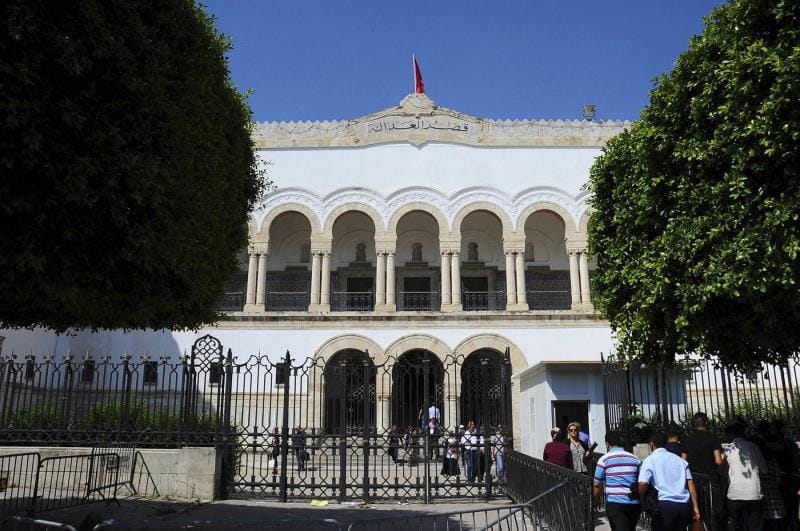A new trial involving 22 prominent Tunisian opposition figures, including former officials and leaders from the Ennahdha party, commenced on Tuesday, intensifying concerns over the growing political repression in Tunisia.
The trial, dubbed “Conspiracy Against State Security II,” comes just weeks after a mass trial sentenced nearly 40 individuals on similar charges. Among the defendants is 83-year-old Rached Ghannouchi, the head of the Islamist-affiliated Ennahdha party, who is already serving a 22-year prison sentence in a separate case linked to state security allegations. Other notable figures in the trial include former Prime Minister Youssef Chahed and Nadia Akacha, once a senior advisor to President Kais Saied.
The charges against the defendants are serious, spanning accusations of terrorism-related offenses, incitement to violence, and plotting against internal state security. Many of the accused are not present in Tunisia and are being tried in absentia, with defense lawyer Samir Dilou confirming that most fled the country in response to mounting pressure.
The trial centers on the allegation that Ghannouchi and other Ennahdha figures orchestrated the creation of a secret security apparatus designed to protect the party’s interests during its dominant role in Tunisia’s post-revolution politics. These developments follow President Saied’s consolidation of power in 2021, when he suspended parliament, dissolved the government, and assumed sweeping executive control, actions that critics argue undermine Tunisia’s fragile democracy.
Tuesday’s proceedings were conducted remotely, with only four of the accused participating via video link. This trial follows the controversial proceedings of last month, which sparked condemnation from the United Nations. The UN expressed concern over the violations of fair trial standards, citing a lack of judicial transparency and due process during the earlier mass trial.
President Saied, however, has dismissed foreign criticisms, labeling them as unwarranted interference in Tunisia’s internal matters. He has firmly defended his actions, arguing that Tunisia’s sovereignty remains intact.
The National Salvation Front (FSN), the country’s main opposition coalition, responded to the ongoing trials by calling for the immediate release of all political prisoners. The FSN condemned the proceedings as politically motivated and described them as part of a broader effort by the Saied government to silence opposition voices and dismantle the democratic gains made since the 2011 revolution.
Once celebrated as a beacon of Arab democracy, Tunisia now faces a starkly different political reality, with increasing doubts about its democratic future and growing international concerns over the erosion of civil liberties and political freedoms.



